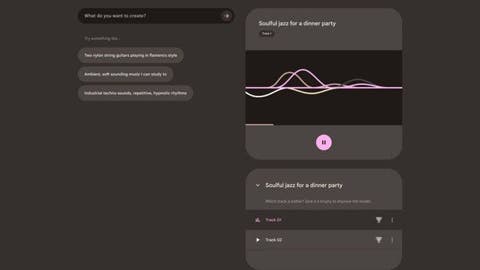Back in January, Google announced a new AI tool that can convert your text prompts into music. It’s called MusicLM which is now available for public use. However, Google intends this release for training the model, so you need to join a waitlist to get access to MusicLM. Google will take the feedback of users to further refine it.
What is MusicLM?
So if you’re unknown of Google’s new music-generator AI tool, here’s what it is. In simple terms, MusicLM is an AI model designed to generate music based on text prompts. It’s a step-by-step process. And Google has published a research paper explaining it in detail. So if you’re the type of person who understands this figure, you can read it from here.
But a valuable data we can extract from the paper is that Google has used 28000 hours of music to train the model. As a result, MusicLM can generate music from your text prompts at 24kHz. Google also says the music remains consistent over several minutes.
But MusicLM’s intelligence extends beyond generating short clips of songs. Research has shown the system can also build music on existing melodies. Like a humming sound, or whistle. Moreover, the model can take several descriptions written in sequence to generate music. For example, you can write “morning meditation,” “birds chirping”. And MusicLM will create a melody of up to several minutes.
in a recent press release, Google shared that the model will create two versions of the songs based on your text prompts. You can listen to them and give a trophy to the track you like better. The feedback will help improve the model.
MusicLM is not the first AI music generator
Having said that, MusicLM is not the first AI music generator in the market. OpenAI has something called Jukebox and Google also has another system called AudioML. But none of them became successful due to limited training data.
So, is AI music generator a threat to musicians?
The answer is no—at least not with the current state of AI music generators. It’s unlikely that AI-generated music can replicate the same intrinsic value as artists. Writing songs is a step-by-step process, a therapeutic journey for most artists. Additionally, listeners often connect with the emotions conveyed by artists through the lyrics. So accelerating this process with AI tools like MusicLM surely cannot be fulfilling.
Also, Google won’t be making MusicLM openly available because of various ethical concerns. At least not for now. The model has the tendency to include copyrighted material into the generated songs. In fact, Google found that 1% of the music generated by MusicLM replicates songs it was trained on. This level of replication is significant enough to dissuade them from launching MusicLM in its current form. So we might not see AI music generators replacing musicians—yet. But you can join Google’s MusicLM waitlist from here. And try to make some fun melodies.
